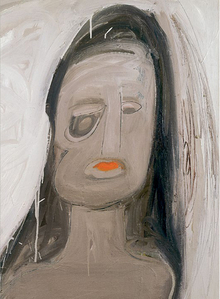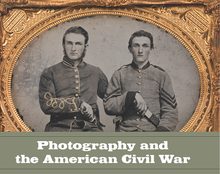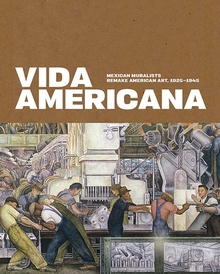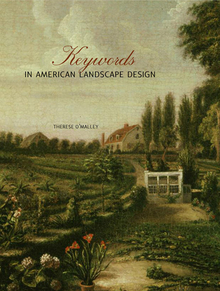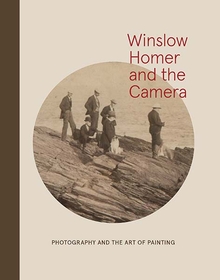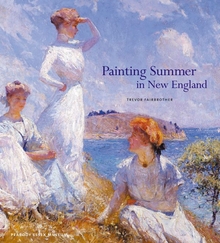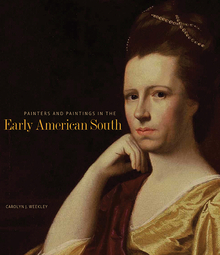Eva Hesse Spectres 1960
WARNING
You are viewing an older version of the Yalebooks website. Please visit out new website with more updated information and a better user experience: https://www.yalebooks.com
Edited by E. Luanne McKinnon; With contributions by Elisabeth Bronfen, Louise S. Milne, Helen A. Molesworth, and E. Luanne McKinnon
A new examination of a fascinating group of paintings from a pioneering mid-century artist
In 1960 Eva Hesse (1936–1970) created an unusual group of oil paintings that, when considered in contrast to her sculptural assemblages from 1965 to 1970, foretell her desire to embody emotional states in abstract form. Contrary to existing scholarship, which suggests that these works represent a form of self-deprecation, this book seeks to consider these “spectre” paintings as manifestations of a private, haunted interiority in the context of the artist’s burgeoning maturity.
The paintings in the spectre campaign comprise two distinct categories. The first, a selection of small-scale oil on Masonite paintings, depicts two or three loosely rendered figures positioned in vacant pictorial spaces. These gaunt forms portray an apparent disconnection between one body and another; and yet, the pictorial drama of the works would be incomplete without the presence of each figure. The second group of paintings imbues a more perplexing psychological state, as characters alternately take on the forms of alien-like creatures or as close resemblances to the artist herself. Through an enlightening assessment of these underappreciated works, readers will gain new insight into their pivotal role in Hesse’s oeuvre.
Published in association with the University of New Mexico Art Museum, Albuquerque
Exhibition Schedule:
Hammer Museum, Los Angeles
09/25/10-01/03/11
University of New Mexico Art Museum
(03/25/11-07/24/11)
Brooklyn Museum of Art(09/16/11-01/08/12)
E. Luanne McKinnon is Director of the University of New Mexico Art Museum. Elisabeth Bronfen is a Global Distinguished Professor of German, NYU, and Chair of American Studies at the University of Zurich. Louise S. Milne is Lecturer at Napier University and the Centre for Visual Studies, Edinburgh College of Art, Scotland. Helen A. Molesworth is chief curator at the ICA, Boston.
EXHIBITION SCHEDULE
Hammer Museum, Los Angeles
09/25/10-01/03/11
University of New Mexico Art Museum
(03/25/11-07/24/11)
Brooklyn Museum of Art(09/16/11-01/08/12)
"Eva Hesse's early works are not simply a prelude to her later sculpture but an intense investigation of the possibilities of figuration in painting in the early sixties. Spectres offers a brilliant and groundbreaking study of her self-inscription—full of blind eyes, blurrings and doublings—with radical implications for our understanding of Hesse's entire body of work." —Briony Fer, Professor of History of Art, University College London
Eva Hesse Spectres 1960 (Yale University Press, $40), edited by E. Luanne McKinnon, is a relatively slim volume that deals with only a slice of the career of the eminent Post-Minimalist sculptor Eva Hesse (1936-1970). But it feels big, being an unknown slice of such a brief career. A catalog for an exhibition that Ms. McKinnon organized at the University of New Mexico Art Museum, Albuquerque (and currently at the Hammer Museum in Los Angeles, through Jan. 2), the book reproduces 21 paintings that Hesse executed in 1960 just after completing graduate school at Yale University and moving to New York. They are elucidated in essays by Helen Molesworth, Elisabeth Bronfen and Louise S. Milne as well as Ms. McKinnon.
The paintings are very much of a piece with Hesse’s sculptures. A few will be familiar, but the majority are not, and the combined force is little short of stunning. They show an already individualized artist finding her own way beyond the immovable force of Abstract Expressionism in images of semi-abstract faces and figures — mostly female — rendered in broad swaths of close-toned tans and grays. In these paintings Hesse seems to unpin the Modernist monochrome and wield it almost like clay, modeling a series of rubbery ghosts that are as tangible, or as intangible as the spaces they inhabit. They are pan-Expressionistic, reaching back to Munch and Arnold Schoenberg and forward to Brice Marden’s moody monochromes. Most of all they confirm the psychological depth of Hesse’s sculptures with a fullness that her subsequent reliefs of the mid 1960s, however important, do not. Dying at 34, Hesse never made art that might remotely be considered her late work. It is great to see her originality extended by these early efforts. After appearing at the University of New Mexico, the exhibition travels to the Brooklyn Museum next fall. —Roberta Smith, The New York Times
Publication Date: November 9, 2010
Publishing Partner: Published in association with the University of New Mexico Art Museum, Albuquerque
35 b/w + color illus.

